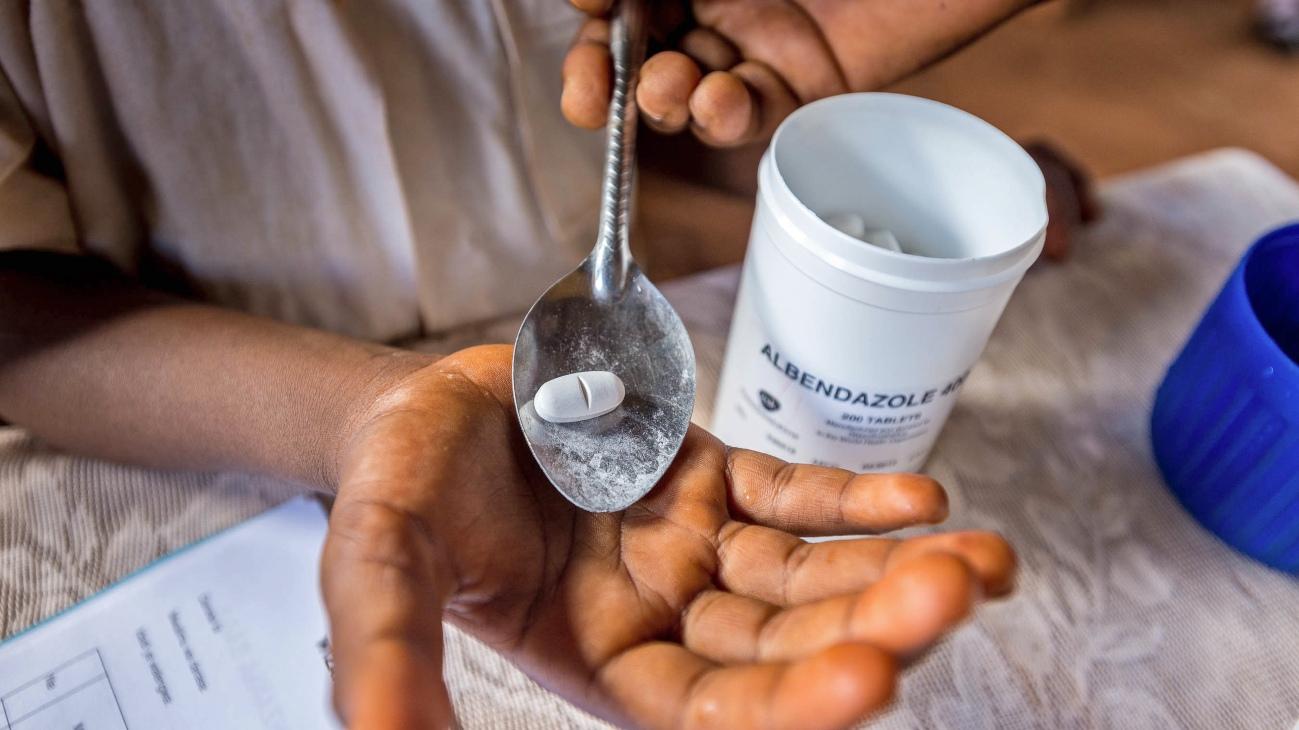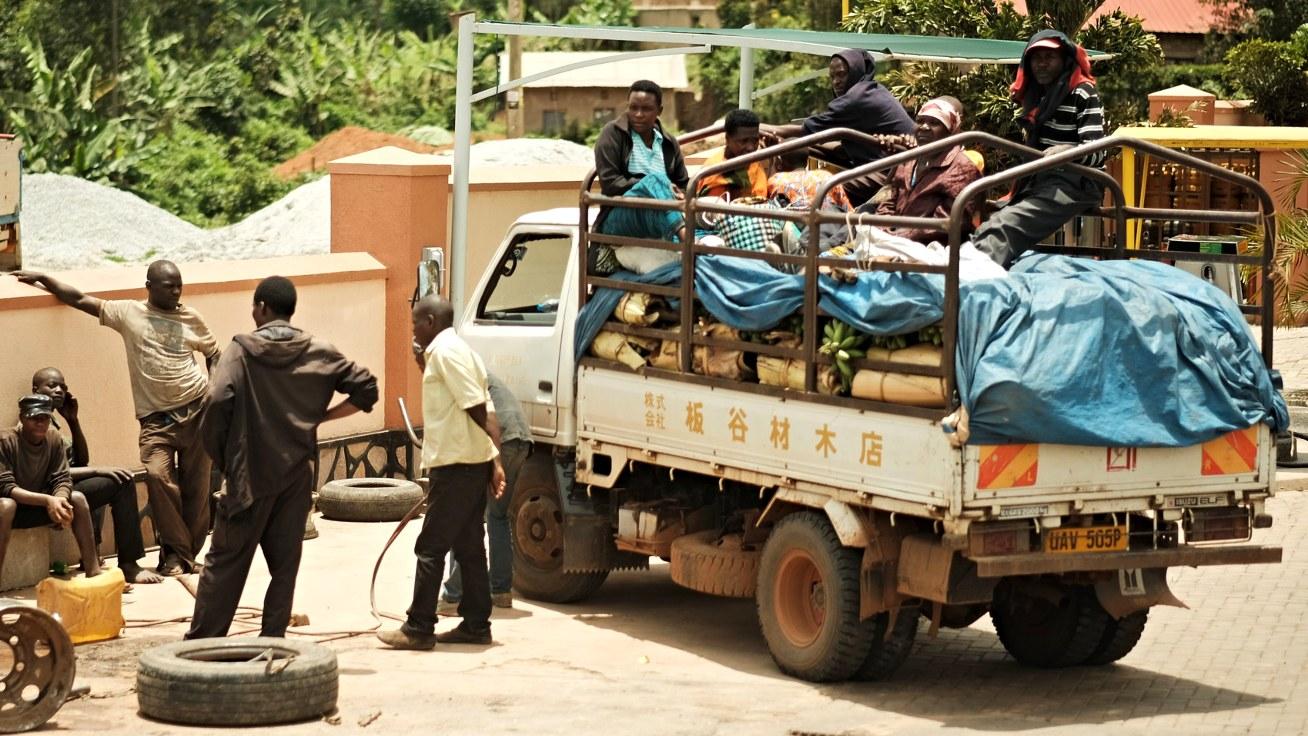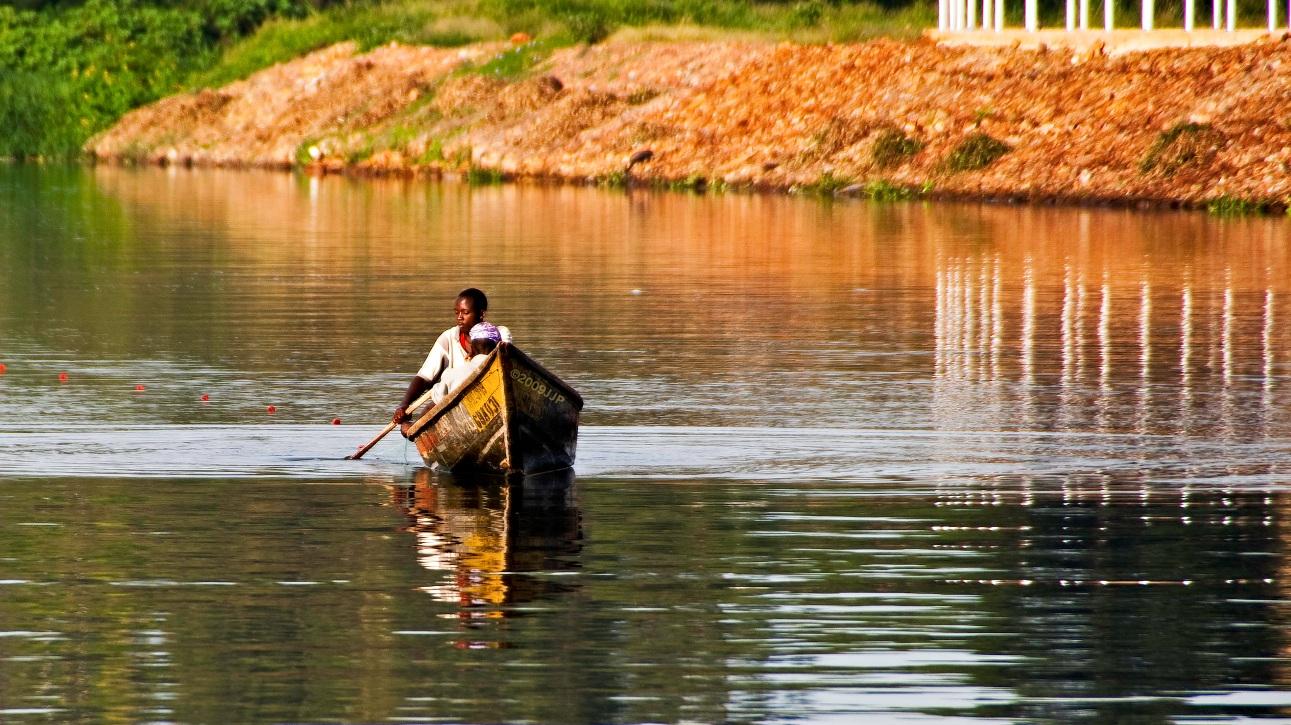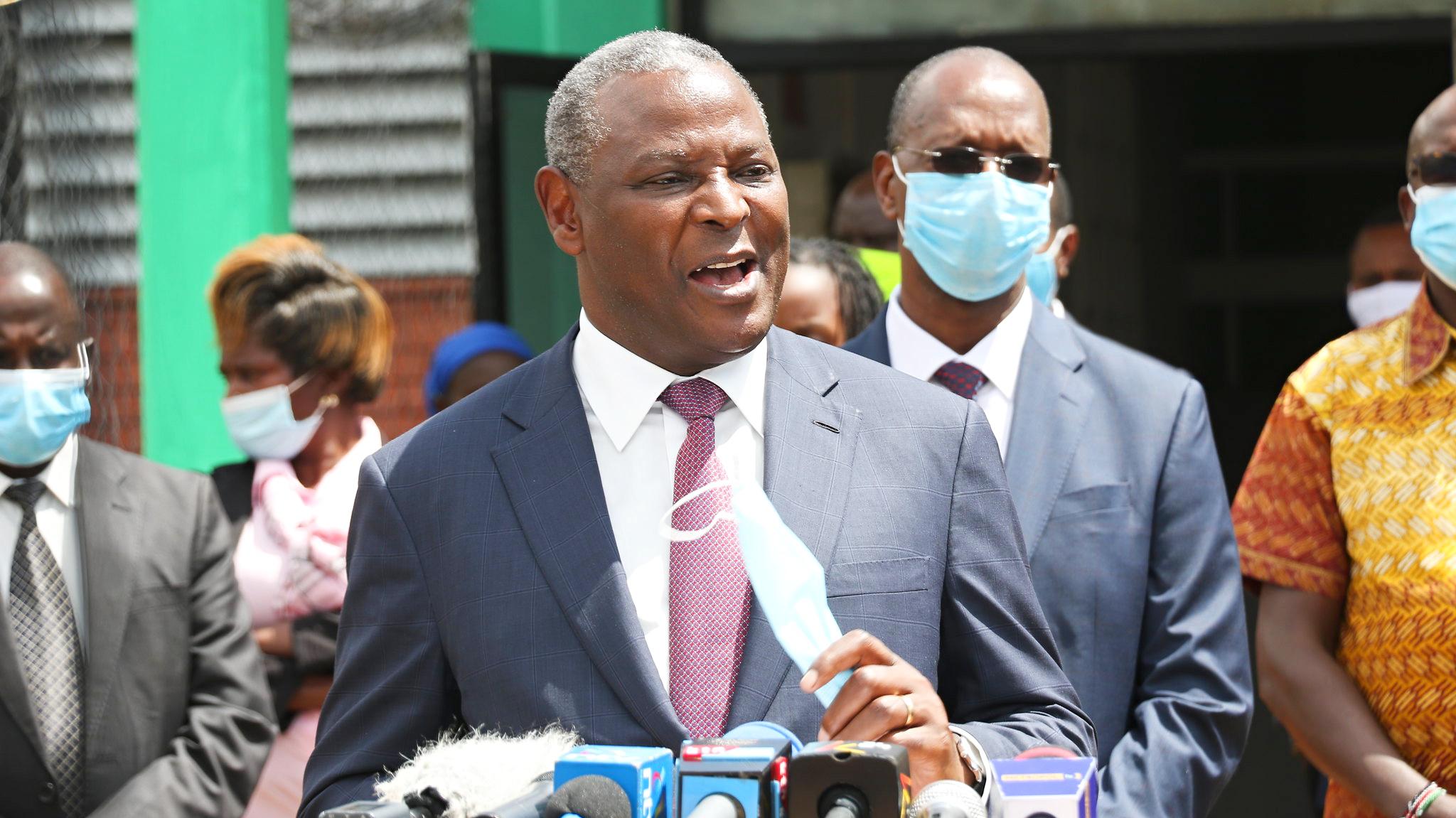The Kenyan government has moved to emphasise the importance of individual action to contain the country’s COVID-19 epidemic, downplaying the socio-economic realities of cities like Nairobi, where most infections are located. In place of enforcing health guidelines, and a coordinated response, the government’s approach could have wide impacts on health and the economy.
This blog is part of the series Shifting Spaces, an emerging timeline of COVID-19 responses from Kenya, Malawi, Tanzania and Uganda from the LEAD research project at the Firoz Lalji Centre for Africa.
On 18 July 2020, while delivering the daily press briefing on COVID-19, the Kenyan Cabinet Secretary for Health, Mutahi Kagwe, unveiled a new slogan ‘Save me, I save you’ in the fight against the virus. His was a call for Kenyans to take individual responsibility for protecting themselves from COVID-19, through observing social distancing and by being wary of people around them. By asserting individual responsibility, the slogan suggested, Kenyans would be able to protect each other from the transmission of the disease.
Earlier that month, on 7 July 2020, Mutahi Kagwe had made a much broader call for individuals to take responsibility to avoid intercounty spread. Following the easing of travel restrictions by President Kenyatta, Kagwe opined that Kenyans can no longer look up to the police to enforce adherence to containment measures. These calls reflected a shift in the Kenyan government’s approach to managing the spread of the virus – namely, placing greater emphasis on the actions of the individual.
The government of Kenya and local partners have done a commendable job in sensitising the public on various measures necessary to curb the spread of COVID-19, such as wearing masks, social distancing, handwashing/sanitising and isolating. One of the most successful campaigns was by the Nairobi-based Maroon Commandos Band of the Kenya Army – Lang’ata Barracks – which released captivating songs calling upon Kenyans to abide by these measures. In one popular song, Army Commandos describe the importance of personal protective measures as weapons against COVID-19: ‘Silaha jamaa, tuoshe mikono, maji safi na sabuni, sanitiza mara kwa mara … barakoa inaokoa, hakikisha umevalia yako (the weapons people: wash your hands, with clean water and soap, sanitize often … a face mask saves, ensure you wear it)’.
By 7 August 2020, it was reported that Nairobi accounted for 54% of the new COVID-19 cases spread across all its 17 constituencies. Despite this relative concentration of cases in the capital, a noticeable proportion of the city’s residents continuously flout public health guidelines, even if they are aware of them. The rallying call by the Health Secretary (‘We beg you, we insist that you stay alive, don’t die’) does not appear to have induced many individuals to take responsibility for staying safe.
This blog unpacks the numerous reasons why groups across Nairobi do not fervently observe the health guidelines, highlighting how the government’s emphasis on individual action fails to take into account the city’s socio-economic realities and how, without enforcement and facilitative mechanisms, bringing COVID-19 under control will be a difficult undertaking. The stakes are significant – for both the city and the nation at large. Indeed, given the nature of the highly transmissible disease, the lack of a coordinated response and limited decisive enforcement by the police could result in higher infection rates, impacting public health, the economy and the social sector more broadly.
Flouting health guidelines: with or without choice?
In the streets of Nairobi’s central business district – Tom Mboya, Accra Road, Latema Road, River Road, Luthuli Avenue, Ronald Ngala, Pumwani and Landhies Road, and in Eastleigh – social distancing is almost non-existent. These areas host the city’s highest concentration of small shops and public bus stops, hawkers and boda boda (motorcycle) taxis.
Noticeably in these areas, nearly all public buses conductors – who are predominantly male – also wear no masks while calling upon travellers. Speaking to John Mwangi, a conductor with one of Super Metro buses, he explained that ‘wearing a face mask makes it hard to project my voice onto potential travellers’. The case is the same in Gikomba Market, the largest open air market in the city, with hundreds of second-hand clothes traders and thousands of buyers operating in tight spaces. ‘We have to eat and pay rent. It is impossible to practice social distancing in this kind of place. And you have to call upon customers to buy otherwise they will go to the next trader’, says Peris Nyambura, a baby clothes trader in Gikomba. In such a highly competitive trading environment, where traders openly display their wares side-by-side, a trader’s aggressiveness and personal engagement with a customer determines their sales income by close of the day. Wearing a face mask can reduce the chances of an all-important sale.
Physical discomfort was presented as another reason for the reluctance of Nairobi residents to adhere to the guidance on face masks. Mama Ruto, a vegetable vendor at Kangemi market in Westlands, argues that a face mask ‘makes it difficult for me to breathe’. Bob Muraya, a boda boda taxi rider (a male-dominated trade) in Kasarani complains that ‘the rubber bands on the masks strain my ears causing pain and I find them uncomfortable to wear’.
Walking in the tight streets of Kawangware and corners of Lang’ata, one is quick to notice that most people do not wear face masks. The few who are wearing masks often don those produced locally by tailors using ankara cloth fabric and sold by hawkers. While these cloth face masks should be washed regularly, maintaining proper mask hygiene may not be a priority as it is common to find a young man with a visibly dirty face mask pulled under the chin.
The sanitising of hands also appears to have been reduced, particularly at bus stops. In the period between March and May 2020, nearly every public bus stop had a handwashing station. Bus conductors sanitised each passenger’s hands before boarding. This was a result of a directive to all Public Service Vehicles by the Minister for Transport on 16 March 2020 requiring bus companies to provide hand sanitising to passengers and fumigate the buses after every trip.
As of late July, most of the handwashing stations have disappeared (possibly stolen or vandalised) and many of those remaining are without water or soap. Conductors are no longer sanitising passengers as they board. Bus managers are no longer willing to bear the cost of sanitisers and running the handwashing stations because buying them (which requires water in jerry cans and soap) eats into the profits of their already reduced incomes. As Maleche, a conductor with a Latema Sacco Bus, described, ‘Right now business is bad and we are making very little money. If we buy these things (sanitisers, soaps, water) all the time what will we take home?’ The cost of sanitisers in Nairobi, however, remains largely affordable for individual households.
Risky behaviours of men
In Nairobi, it is reported that higher numbers of men have been infected with COVID-19 compared to women. The Kenyan Cabinet Secretary for Health pointed out that ‘men have been leading with the most numbers compared to women and it is because men are not wearing masks. If you walk around, you will see that women are walking around with masks. Men should be more careful‘. The reasons for this could be many, however. As is the case with recreational and gambling activities, studies indicate that with regard to health men tend to adopt more risky behaviour.
Perhaps more significant is the fact that men in Nairobi are at a higher risk due to a lack of social distancing embedded in their daily livelihood activities. According to the Kenya National Bureau of Statistics the country has over 700,000 boda boda taxis, predominantly run by men, with Nairobi County having the largest share. When providing transport there is no social distance between the passenger and rider. Similarly, research by Deloitte indicates that 70% of Nairobi residents use public buses – another sector dominated by male drivers and conductors. While collecting fares, issuing tickets, dropping off and picking up passengers, the conductor has to have close human interactions, massively increasing the odds of infection and transmission.
Many other kinds of informal jobs such as handcart and trolley-pulling between markets, businesses and bus stops in Nairobi also puts men at greater risk of infection, resulting from the inevitable interactions with other individuals. Informal employment accounts for 83% of Kenya’s workforce, with over 15 million working in the informal sector with the majority being men. As is the case outside of Kenya, those working in formal and office environments are at an advantage. Most companies have reorganised their workspaces to enforce social distancing, provide sanitisation facilities, ensuring use of face masks and where possible allowing employees to work from home.
Accountability at the top
The country’s leadership has not been steadfast in setting good examples to the public. Recently, three cabinet secretaries (Eugene Wamalwa, Peter Munya and James Macharia) held unnecessary public meetings to discuss ‘Luhya Unity’, a revival of Nzoia Sugar Company and launching a road. On 18 July 2020, the Senator for Nairobi County, the Chairman of the Senator Ad-hoc Committee on COVID-19, was arrested drunk for flouting curfew rules at Ladies Lounge club. The subsequent public backlash that top government officials seem exempt from health measures was so much that the President had to halt their country-wide tours. The lack of good examples at the top – in a country where politicians are highly revered – encourages people to emulate the wrong actions. ‘Set example as leaders, whether spiritual or political, to observe the guidelines we have issued’, CS Kagwe has previously urged.
The government – at the county and national level – is largely accountable for ensuring public health. Many guidelines and rules contained in ‘Kenya Public Health (Prevention, Control and Suppression of COVID-19) Rules 2020’ have been developed and gazetted. However, enforcement is largely lacking. It is incumbent upon the government, which has power and authority, to ensure that those guidelines are followed to the letter to control the spread of the disease and maintain the integrity of the broader healthcare system.
Similarly, curbing the impact of COVID-19 on the economy is paramount. Runaway infections have the possibility of massively shaking the economy, thereby causing great harm to the private sector, reducing state revenues and increasing unemployment in a country already struggling with massive youth unemployment. Interaction of these effects and politics might eventually threaten the security of the state through actions such as widespread civil unrest or uprising, as was seen previously in response to contested elections and restricted democratic space. The recent unrest in neighbouring Sudan and Ethiopia exemplify what could potentially happen in Kenya.
Collective efforts are needed
Defeating COVID-19 requires collective efforts – by all Nairobi residents, the county and national governments. Individual responsibility without decisive state coordinated enforcement and facilitative efforts will not bring COVID-19 under control. Some people follow guidelines and others do not. While for some the flouting of guidelines may be chosen, there are many more who simply are unable to follow the rules due to the nature of their workplace and space; their economic and social needs make adherence impossible.
Regardless of intention, the actions of the rule-breakers will ultimately result in increased transmissions in the community, threatening even the safety of those who fervidly observe the guidance. Enforcement will largely ensure that handwashing stations work and everyone properly wears a mask. Governmental facilitation and city reorganisation – of markets, public bus stops, hawking – will address the challenges of congestion within the business district, thus enabling people to observe social distancing. Until a vaccine is available and affordable, Nairobi will only be saved by cooperative efforts of both the people and the government.
Photo by Matthew Spiteri on Unsplash.






What is happening in Nairobi is similar to the situation in Accra. I enjoyed reading this. Good work, Duncan.